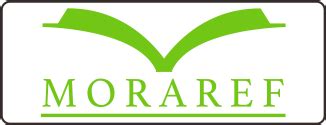PENERAPAN TEORI ANNE ROE DENGAN STUDI KEPUSTAKAAN
ABSTRAK, METODE PENELITIAN, HASIL DAN PEMBAHASAN, Hasil, pembahasan, KESIMPULAN, refrensi
DOI:
https://doi.org/10.61721/educandumedia.v2i2.274Keywords:
Keywords: Anne Roe's Career Choice Theory, The Influence of Family Environment on Career Choice, Kata Kunci:Teori Pilihan Karir Anne Roe,Pengaruh Lingkungan Keluarga pada Pilihan KarirAbstract
Teori Anne Roe, seorang psikolog klinis terkemuka, mengusulkan pendekatan kebutuhan dalam pemilihan karir. Penelitiannya terhadap seniman menyoroti dua aspek utama: perbedaan fisik-biologis dan interaksi sosial memainkan peran kunci. Roe menekankan bahwa pengalaman masa kecil memengaruhi kepribadian dan pilihan karir seseorang.Pandangan Roe menyoroti pengaruh kesan pertama dalam masa bayi dan awal kanak-kanak terhadap energi psikis individu. Faktor lingkungan keluarga, seperti asuhan yang kasih sayang atau dingin, membentuk orientasi karir. Hipotesis Roe mencakup aspek hereditas, pengamatan diri, dan pengaruh emosional pada keputusan karir.Roe mengelompokkan karir menjadi dua kategori utama: "Person Oriented" yang fokus pada interaksi manusia, dan "Non-Person Oriented" yang berorientasi pada benda. Kategori ini dibagi lagi menjadi enam level, mencakup profesional, semiprofesional, hingga pekerjaan tidak terampil.Pola pendidikan keluarga, menurut Roe, memainkan peran kunci dalam perkembangan individu. Gaya interaksi orang tua-anak, termasuk menjauhi, pemusatan perhatian, dan pola penerimaan, dapat mempengaruhi orientasi karir. Teori ini juga mengaitkan kebutuhan manusia dengan pilihan karir, mengacu pada hierarki kebutuhan Maslow.Dengan merangkum konsep-konsep tersebut, teori Anne Roe
memberikan pandangan yang mendalam tentang faktor-faktor yang mempengaruhi pemilihan karir individu, mempertimbangkan aspek fisik, sosial, dan psikologis dalam perjalanan perkembangan karir seseorang.
ABSTRACT
The theory of Anne Roe, a leading clinical psychologist, justifies the needs approach to career choice. His research on artists highlights two main aspects: physical-biological differences and social interactions play a key role. Roe emphasized that childhood experiences influence a person's personality and career choices. Roe's views highlighted the influence of first impressions in infancy and early childhood on an individual's psychic energy. Family environmental factors, such as affectionate or cold parenting, shape career orientation. Roe's hypothesis includes aspects of heredity, self-observation, and emotional influence on career decisions. Roe grouped careers into two main categories: "Person Oriented" which focuses on human interactions, and "Non-Person Oriented" which focuses on objects. This category is further divided into six levels, including professional, semi-professional, and unskilled work. Family education patterns, according to Roe, play a key role in individual development. Parent-child interaction styles, including detachment, focused attention, and income patterns, can influence careers. This theory also measures human needs with career choices, referring to Maslow's hierarchy of needs. By summarizing these concepts, Anne Roe's theory provides an in-depth view of the factors that influence individual career choices, considering physical, social and psychological aspects in the course of a person's career development.









